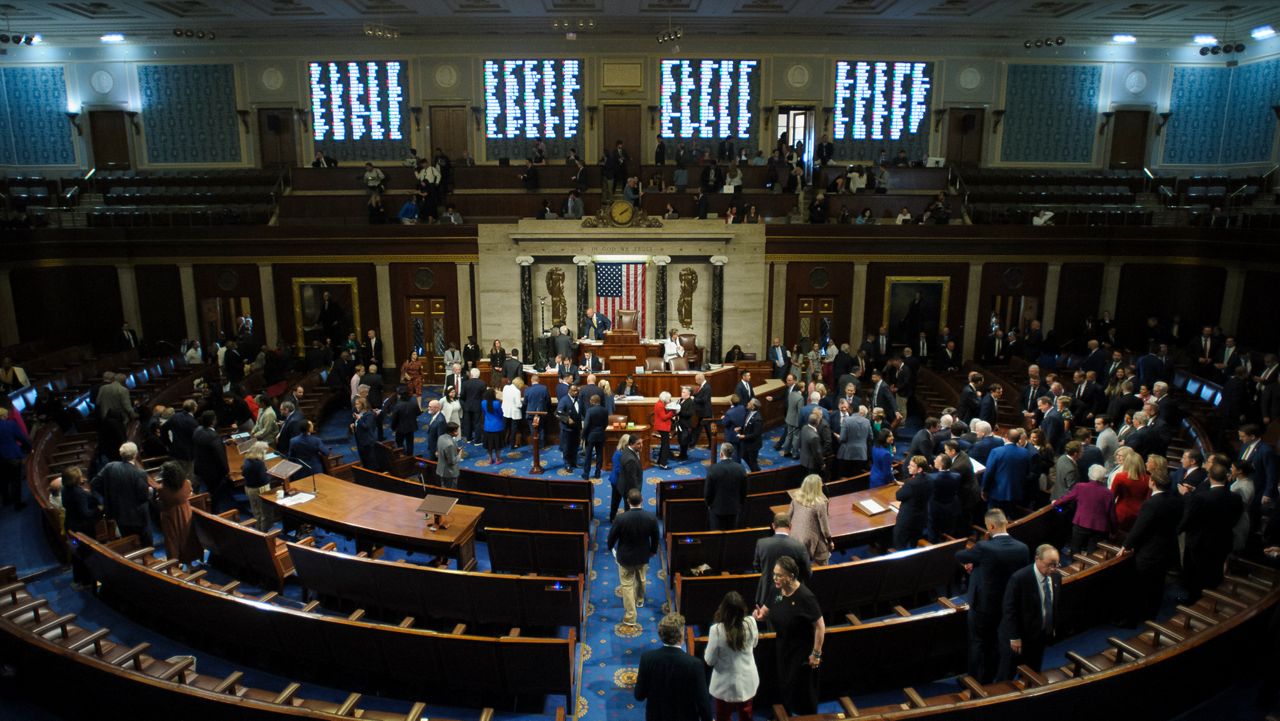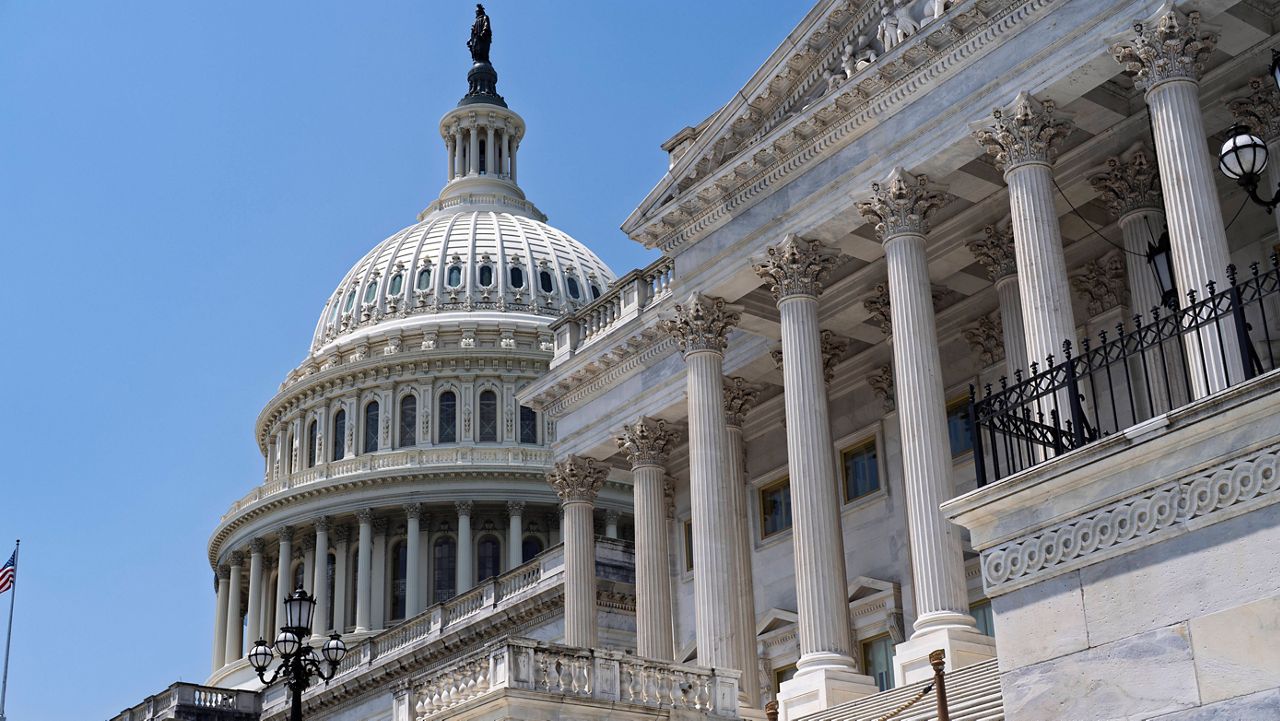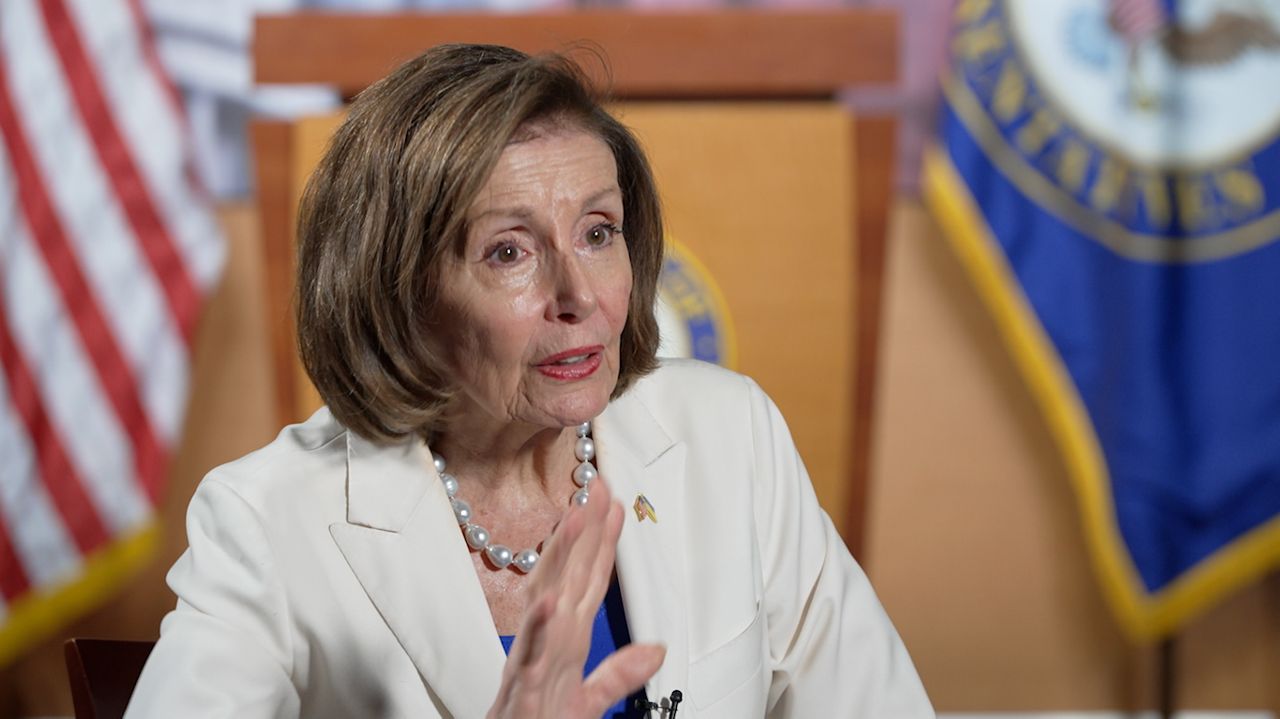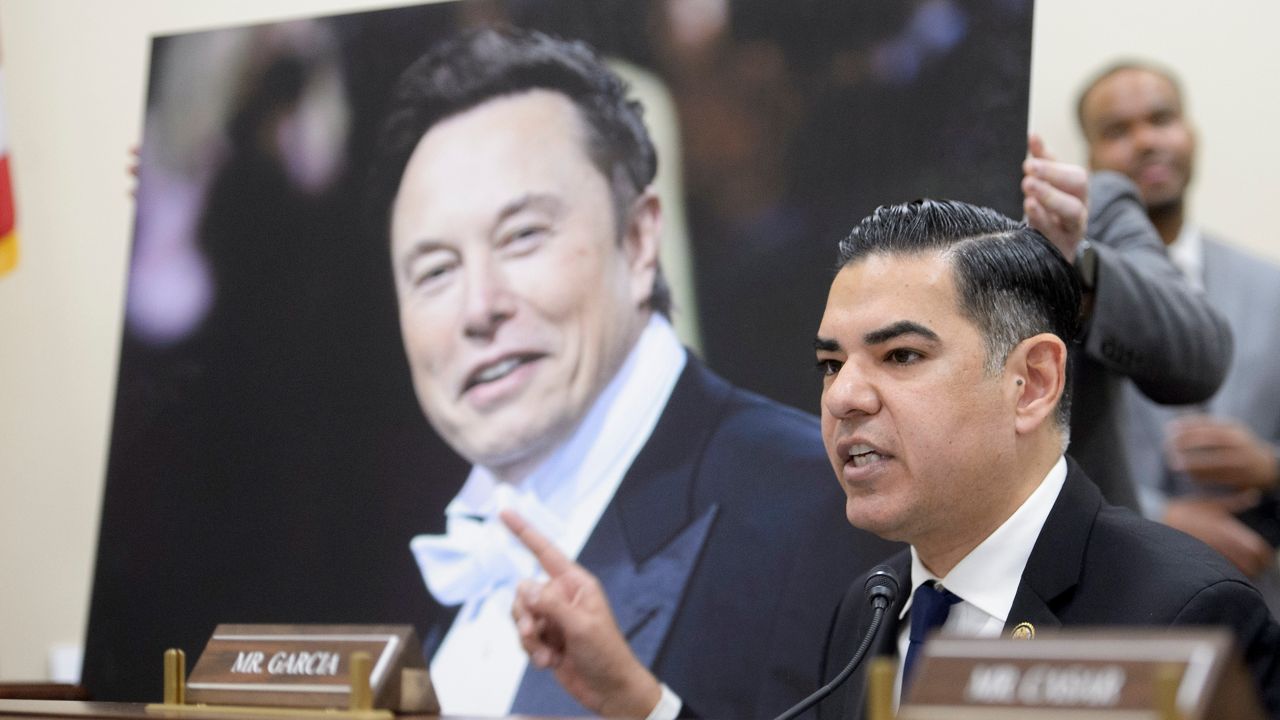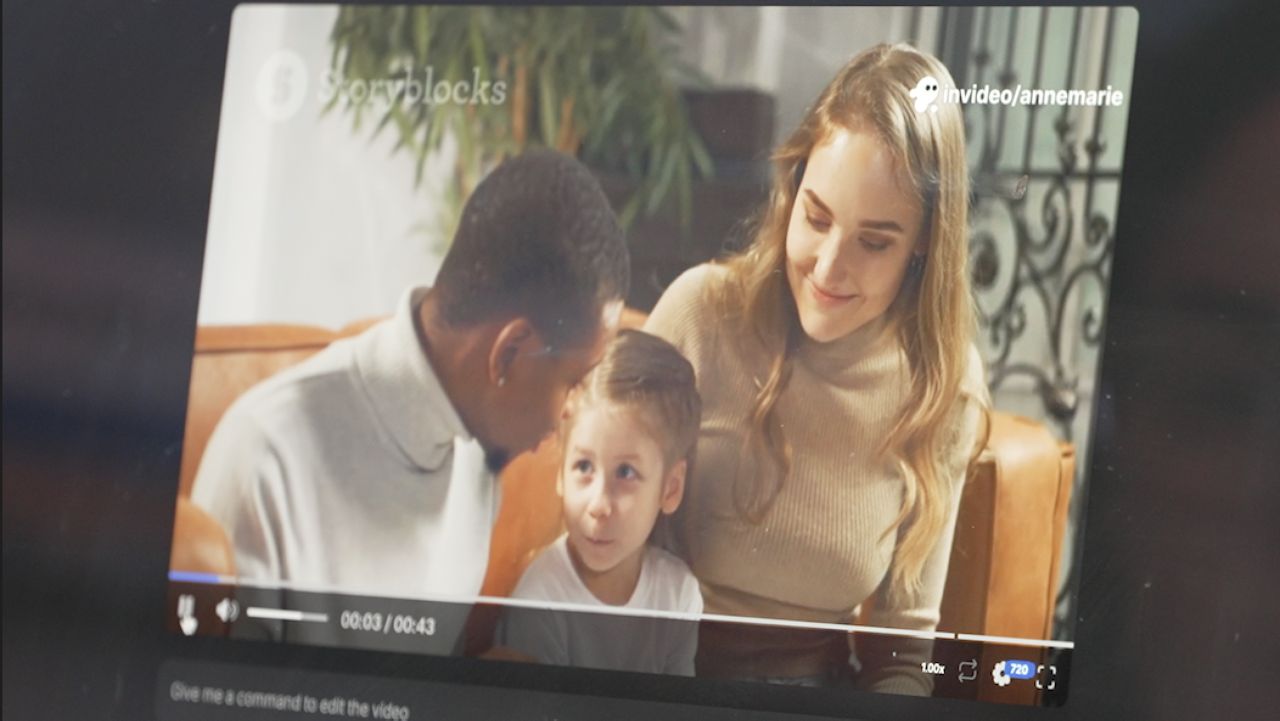WASHINGTON — COVID-19 cases are rising again as a new variant begins to circulate in some parts of the world, with the World Health Organization last week saying the rise in cases is primarily in the eastern Mediterranean, Southeast Asia and western Pacific regions.
The variant, called NB.1.8.1, is also present here in the U.S.
Airport screening in the U.S. has detected the new variant in travelers arriving from those regions to destinations in California, Washington state, Virginia and New York.
A Health and Human Services spokesperson told Spectrum News that the CDC is aware of reported cases of COVID-19 NB.1.8.1 in China and "is in regular contact with international partners. There have been fewer than 50 sequences of NB.1.8.1 in the U.S. baseline surveillance data to date, so it has not met the threshold for inclusion in the COVID Data Tracker dashboard.”
But experts are watching and waiting to see how the virus will spread.
“It's very close — relatively closely related — to the strains that we picked for the vaccine that was used last fall and is being currently used as a booster,” said Dr. John Swartzberg, professor emeritus at the University of California, Berkeley, who specializes in infectious diseases and vaccinology. “It's not anywhere near a strain that our sub-variant that would just cause an explosion of cases, but it certainly could cause an increase in cases. And we are seeing an increase in cases worldwide.”
That rise in cases isn’t out of left field, according to Dr. Anne Rimoin.
“If we look at previous trends, we can expect that there's going to be an uptick in COVID-19 cases between now and the beginning of September,” said Rimoin, a professor of epidemiology at the UCLA Fielding School of Public Health. “We haven't seen COVID settle completely into a predictable pattern, as many respiratory pathogens do. But if we look at the past four summers, we've seen a very distinct spike in cases, and so I think that it's very likely that we'll see these upward trends occur.”
The new variant has emerged as the United States' official stance on COVID-19 vaccination shifted. Health and Human Services Secretary Robert F. Kennedy Jr. made the announcement that COVID-19 shots are no longer recommended for healthy children and pregnant women last week.
“We believe the recommendation should be with a patient and their doctor. So we're going to get away from these blanket recommendations in healthy, young Americans,” FDA administrator Dr. Marty Makary said on "Face the Nation" Sunday.
Despite HHS saying it will not recommend a COVID vaccine for healthy children, the CDC is saying children will still be able to get the vaccine after consulting with a health care provider.
There is less guidance for pregnant women, creating confusion for those in the field, not to mention the average American weighing whether or not they should get the vaccine.
“I think that there's a lot of confusion and a lot of mistrust, a lot of misinformation out there, and I think that that's going to continue to create a lot of complexity around control of communicable diseases in our country,” said Rimoin. “I think that clear messaging from CDC, from FDA, from from all agencies and federal public health communities mean to be really important to restore faith in public health and make it easy for people to understand what the risks are, what their options are and and how to proceed when they would like to be able to protect themselves or people around them or their community.”
Despite the confusion these changes have caused, HHS spokesman Andrew Nixon minimized any daylight between the department and the agency when it comes to COVD vaccines.
“The CDC and HHS encourage individuals to talk with their healthcare provider about any personal medical decision,” Nixon said in a statement. “Under the leadership of Secretary Kennedy, HHS is restoring the doctor-patient relationship. A decision to vaccinate should be based on informed consent through the clinical judgement of an individual’s healthcare provider.”
COVID numbers have been relatively low throughout the U.S. this year, though the Centers for Disease Control reports it has been considered the cause of 11,707 deaths through May 24. The new strain of COVID is believed to be more contagious, but that doesn’t necessarily mean it is more deadly. Swartzberg is advising caution and vaccination to continue to prevent COVID.
“It's still a significant infectious disease that is preventable to a large extent with vaccination, or at least the serious consequences of it. So from that perspective, I — as a public health professional, as a physician — I think it's incredibly important that we do everything we can do to assure people's safety,” said Swartzberg, who noted that if a patient has received last fall's booster or gets one now, they will have some level of protection from the new strain.
He also noted that creating confusion around vaccine guidance will likely result in people not getting vaccinated. The U.S., he said, is already seeing the consequences of “vaccine cynicism.”
“We've had four deaths from measles in the United States this year. We haven't had four deaths in the 21st Century,” Swartzberg said. “It's only going to get worse.”
Rimoin said because COVID is still a relatively new disease, it’s hard to predict how it will change — and how sick it could make individuals — in the future.
“As people continue to not take advantage of [the] COVID vaccine, we see waning immunity. Certainly you can see a surge, and we've seen what COVID can do. The question is — how long does population immunity hold? And we don't really know,” she said. “From a public health perspective, you're always looking to be able to minimize risk to the public and so we do think that continuing to get vaccinated and use other mitigation strategies is going to be important. The fact is, we just don't know what COVID will do over time.”
The Advisory Committee on Immunization Practices is scheduled to meet later this month to give recommendations for vaccine eligibility, something that normally happens before an announcement like Kennedy’s last week is made. Those recommendations are usually given to the CDC director, but while Susan Monarez has been nominated by President Donald Trump for the position, she has not yet been confirmed.
Rimoin said she is hoping that meeting will provide further clarity for the public about whether they can get a COVID vaccine this fall.
The Associated Press contributed to this report.





